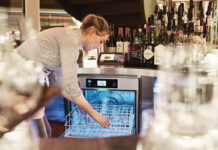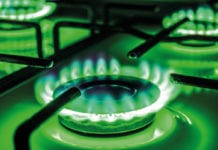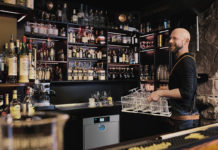Developments in catering technology are helping to reduce the burden
AS more venues are improving their food offer, or introducing one for the first time, it’s clear that great food can make a big difference to an outlet’s fortunes.

And catering to this demand can be made altogether easier if operators take advantage of the latest developments in catering equipment, say suppliers.
“The importance of food in Scottish bars and pubs has increased massively and it is often considered essential to have a food offering if you are to survive in such a competitive market,” said Tim Strutt of Electronic Temperature Instruments (ETI).
“To offer a consistent level of quality food you need to ensure you have quality equipment.”
Heather Beattie, brand manager for Nisbets, agreed, saying the on-trade had to take advantage of new technology in catering equipment as it “is now more accessible and affordable for pubs and bars, which has inevitably led to a higher standard of food being served within most establishments over the last few years”.
The food quality isn’t the only advantage to this newer, more advanced equipment.
“The Carbon Trust states that energy used in catering facilities typically accounts for between 4% and 6% of operating costs and some kitchens only use 40% of the energy they consume in the storage and preparation of food; much of the rest is wasted into the kitchen as surplus heat,” said Trevor Burke, managing director of Exclusive Ranges.
To offer a consistent level of quality food you need to ensure you have quality equipment.
“Recent developments in catering equipment can not only help to make chefs’ lives easier in preparation of food, but also reduce energy consumption, save money and improve the working environment by reducing the residual heat in the kitchen. In many cases this can also result in better food quality and hygiene standards too.”
Advancements in technology have also led to the creation of new, multi-purpose machines that are capable of performing several tasks, and so are particularly suited to smaller kitchens.
“Space is a key consideration when specifying equipment in busy pubs and bars,” said Mark Hogan, marketing and sales manager at Foodservice Equipment Marketing.
“Caterers are increasingly looking for equipment that makes the most of the space available. It’s here multifunctional cooking equipment really comes into its own. It allows kitchens to maximise output on a smaller footprint and adapt to changing menus and demands.”
Modern equipment should last around ten years or so, according to Simon Lohse, managing director of Rational UK, the parent firm of equipment brand Frima.
“It’s therefore vital to source modern, flexible multifunctional cooking equipment,” said Lohse.
And it’s always worthwhile researching equipment before spending the money.
“To make sure you are making the correct decisions go and visit other sites where they already use the equipment that interests you, get it demonstrated and compare it with other similar products on the market,” said Lohse.
“Importantly never be afraid to ask manufacturers and suppliers if you can have the equipment for a trial period – you want to be sure it will work for you. When working with manufacturers and suppliers you should always ensure that they fully understand your requirements.”
Price and footprint – the physical space taken up by equipment – are two of the most important considerations for any licensee looking to acquire or upgrade equipment, said Steve Elliott, sales director for Valentine and Cuisinequip.
However, it’s also essential that staff know how to correctly operate and care for any equipment in place.
“Even expensive equipment will not last if staff are not trained properly to use it, and this includes how to do basic maintenance and cleaning routines,” said Elliott.
This was echoed by Stephen Ongley of Liebherr Refrigeration, who said staff must be trained to clean any new appliances properly and, when appropriate, follow the manufacturer’s advice and training if required to “help get a return on investment”.
Here, too, technology has made things easier for operators.
“Modern machines mean preventative maintenance can be more proactive than ever,” said Paul Crowley, marketing development manager at Winterhalter.
“For example, full diagnostics can be conducted by connecting machines to a laptop. Or a machine can be set up to notify the operator when preventative maintenance is due, with a symbol on its control panel. Preventative maintenance service contracts are a good way to keep equipment in tip top condition.”























